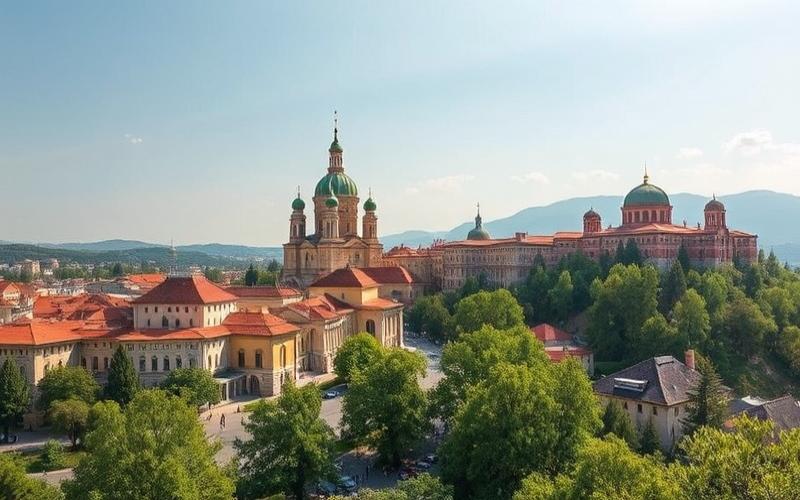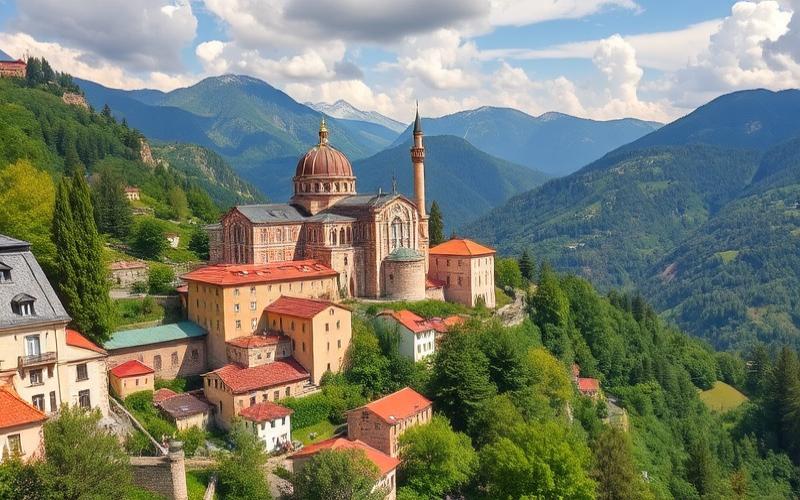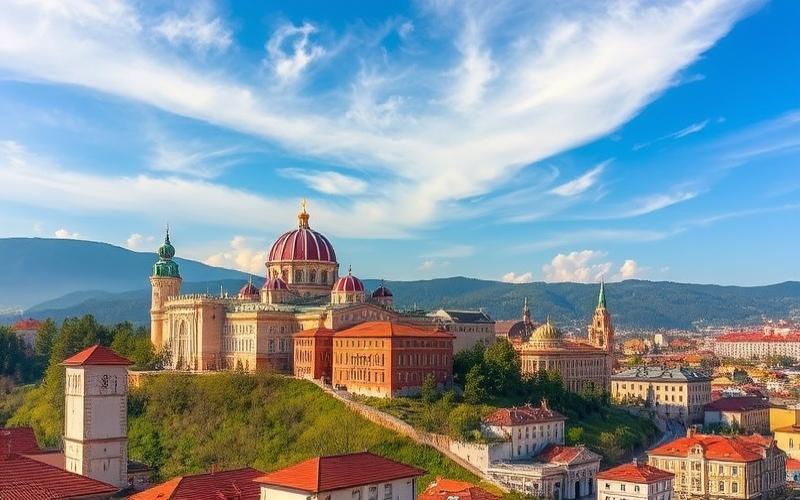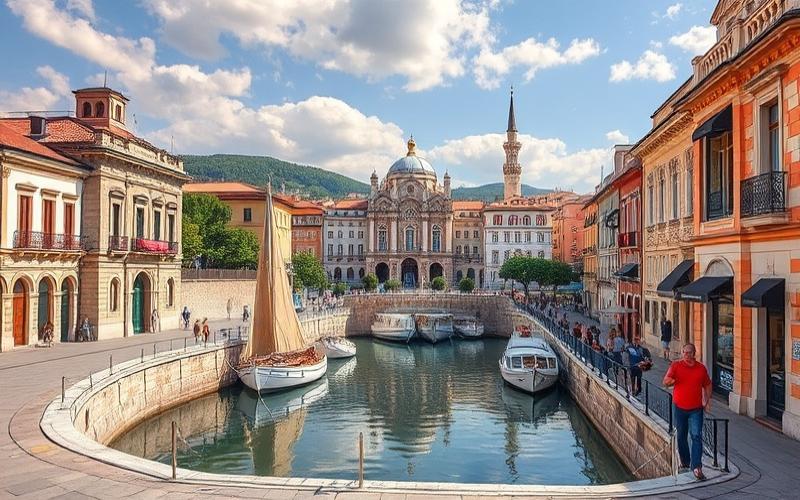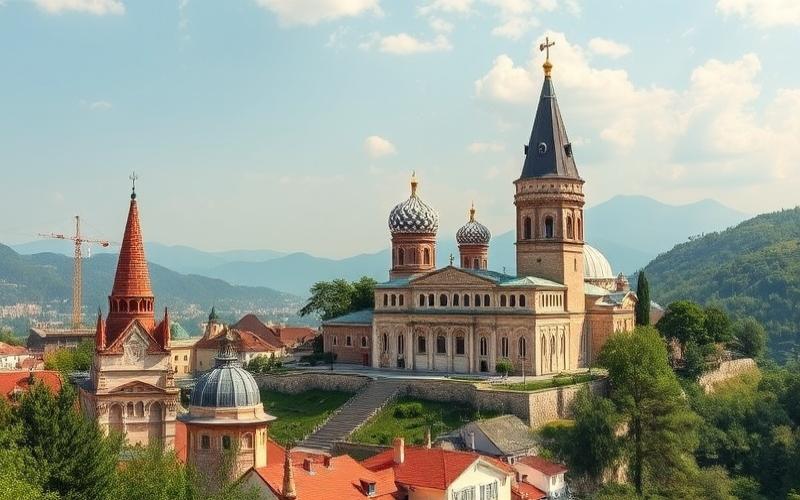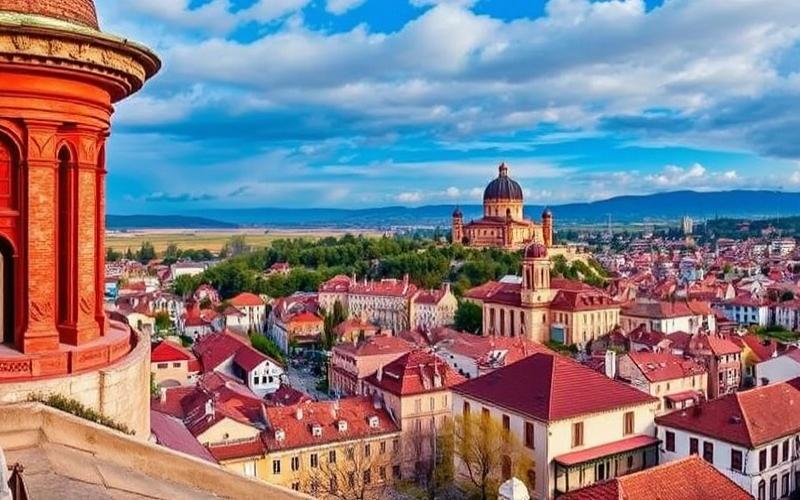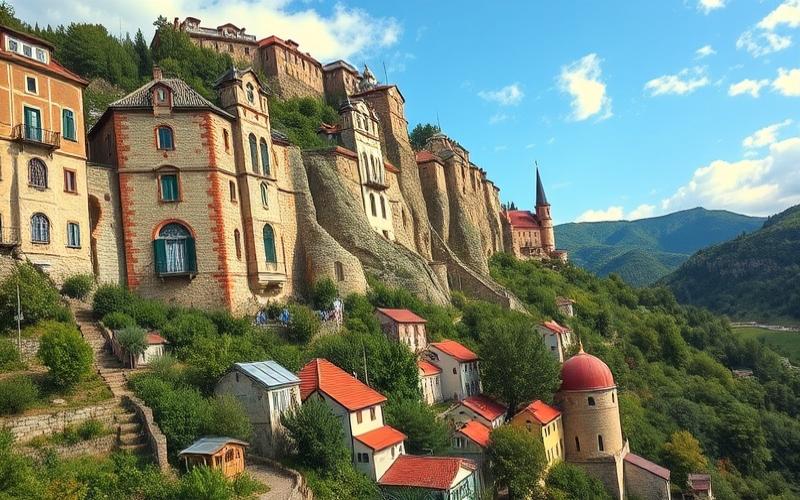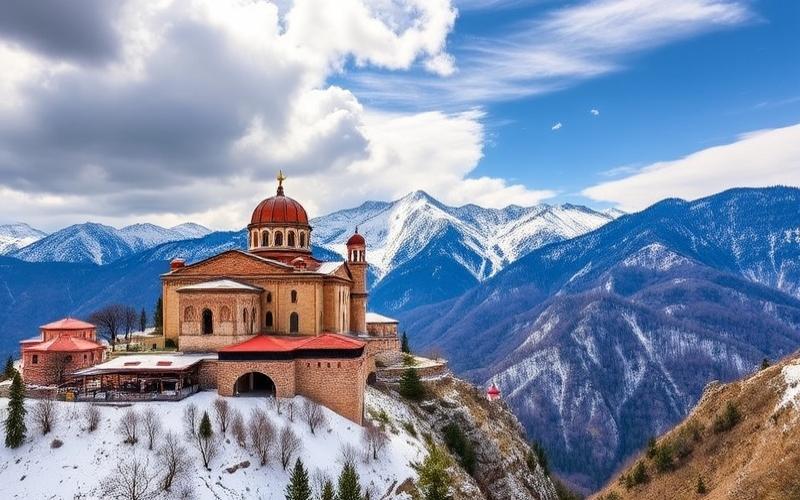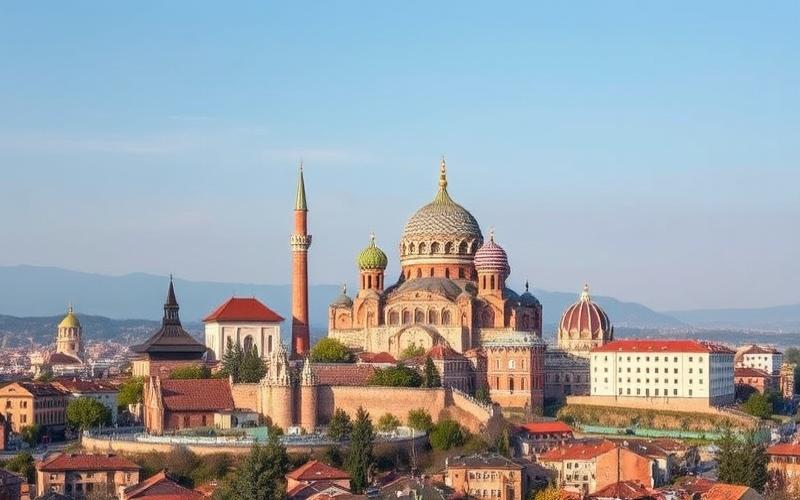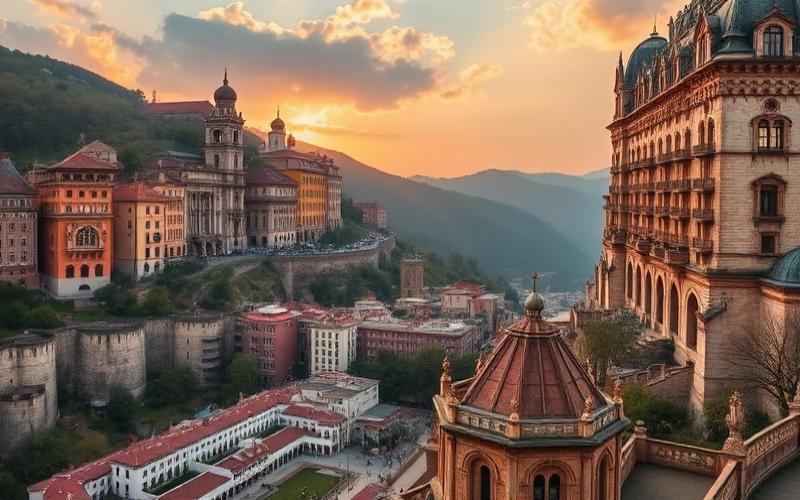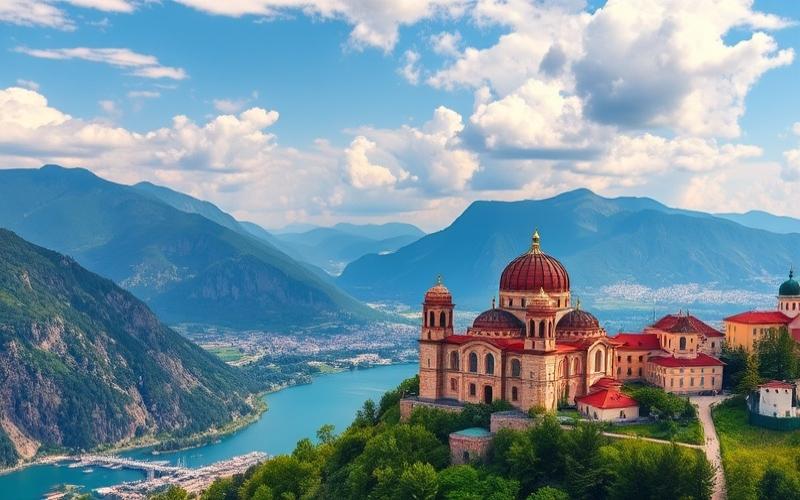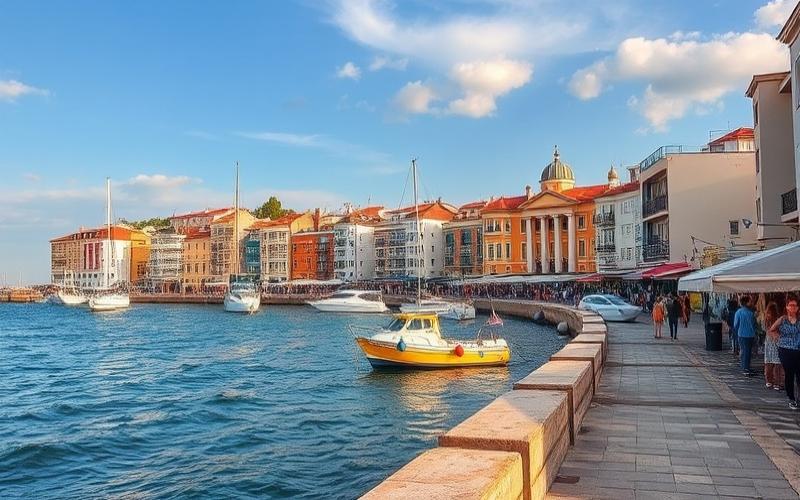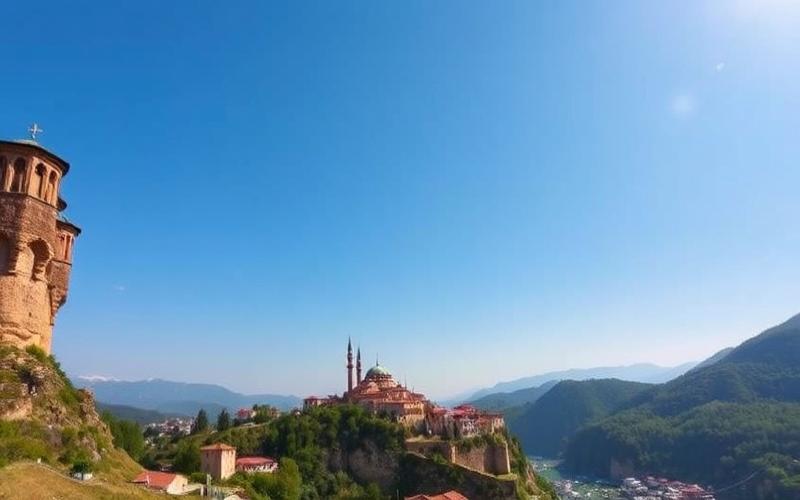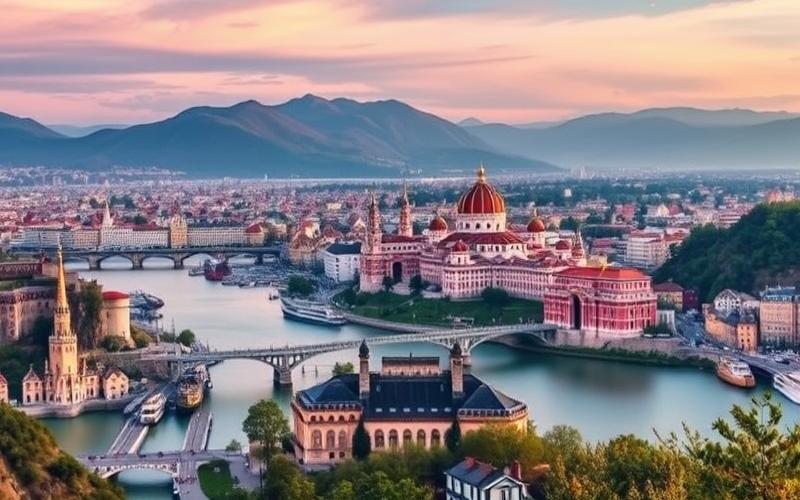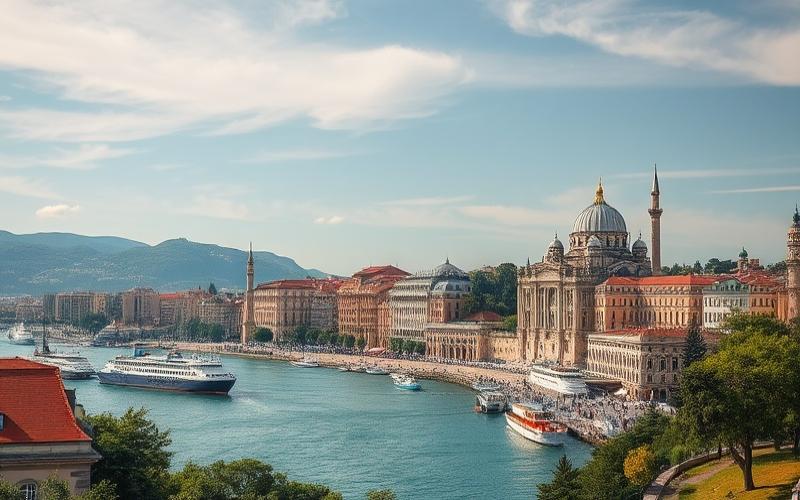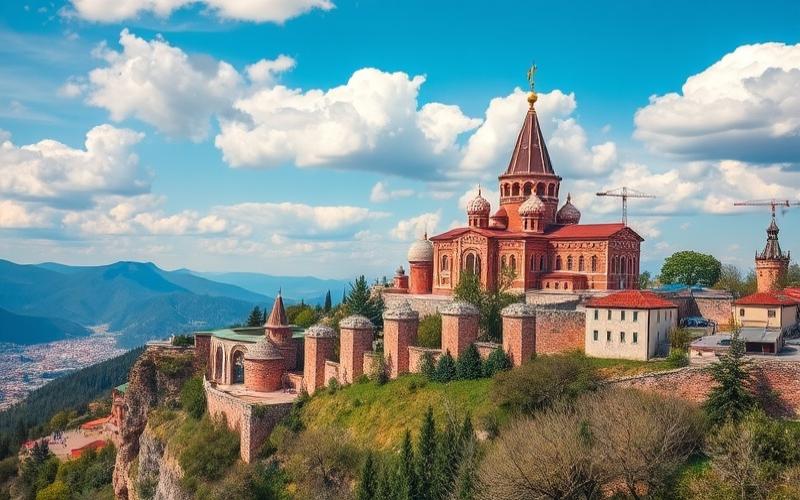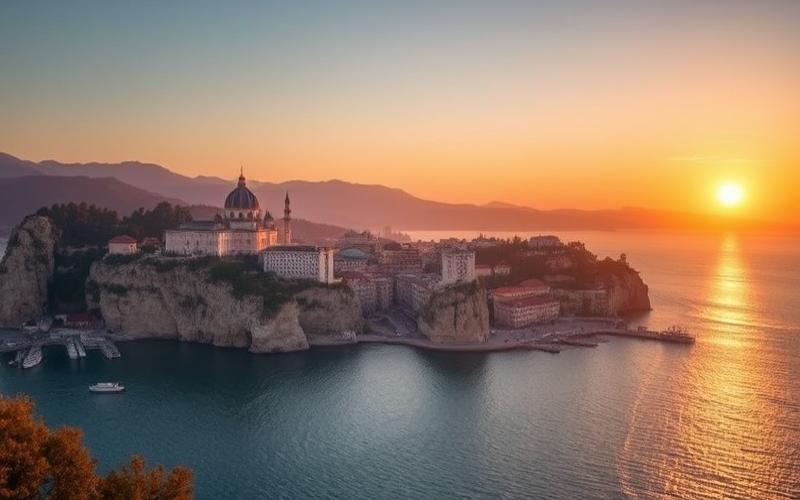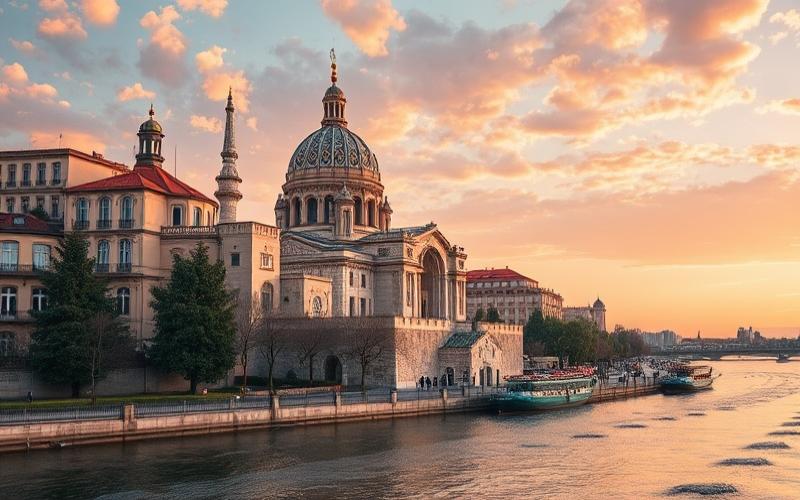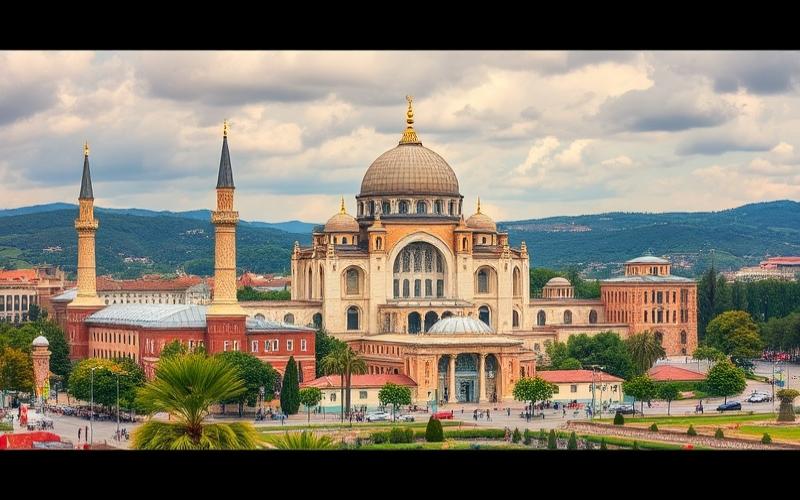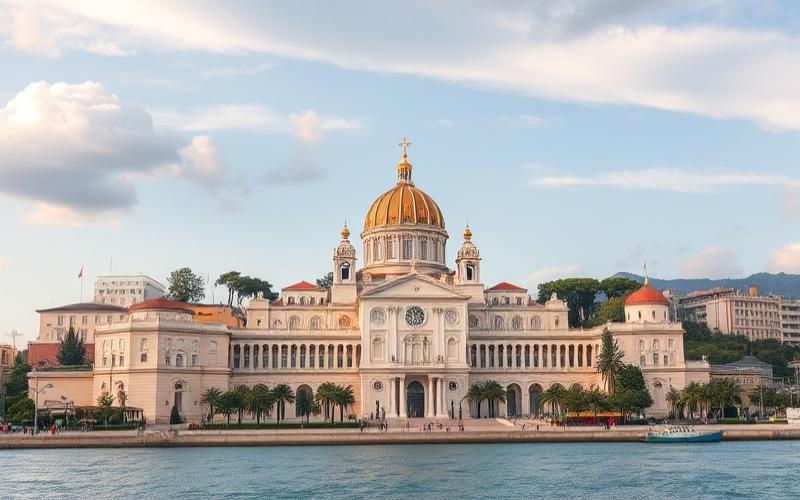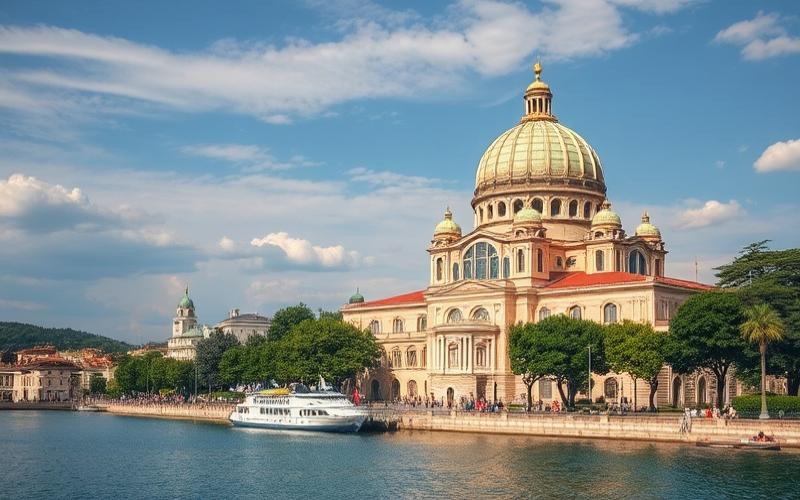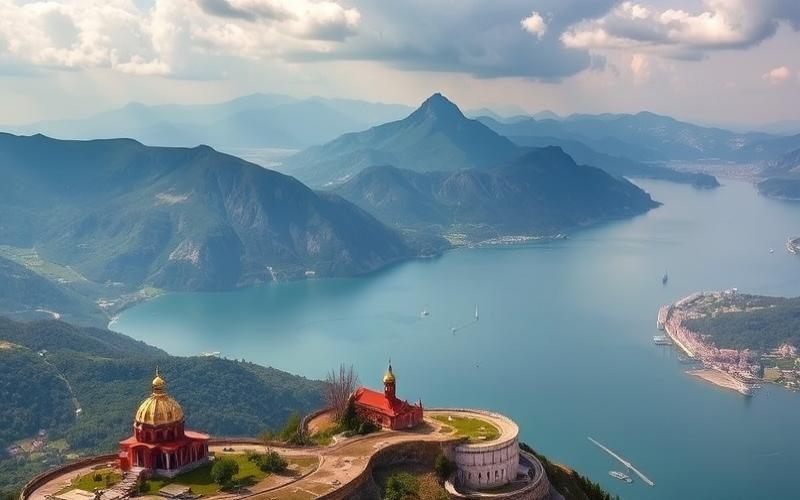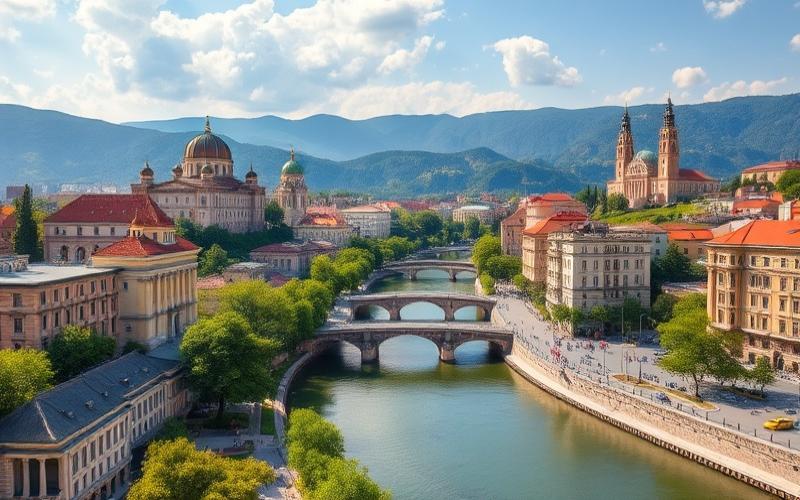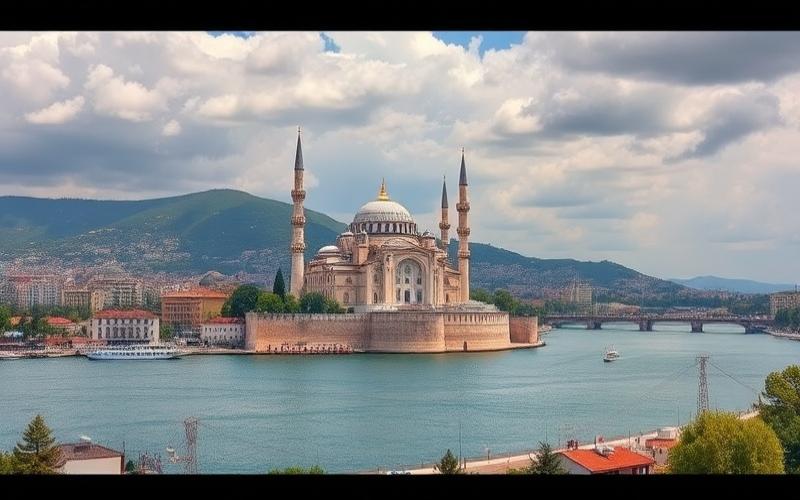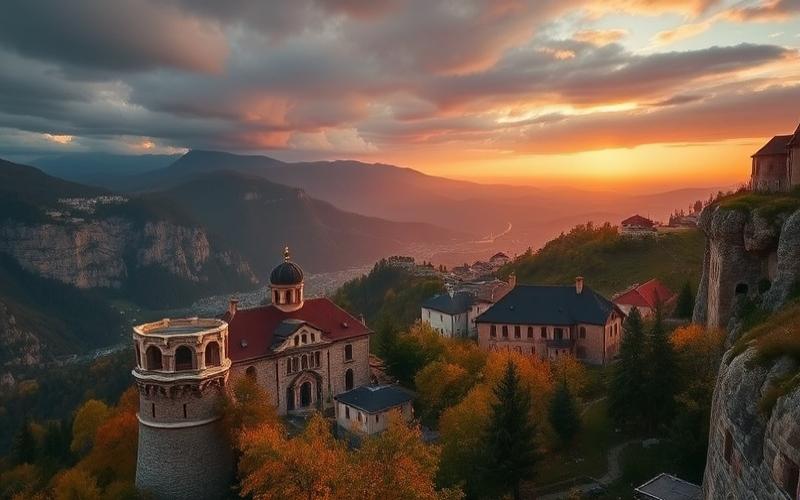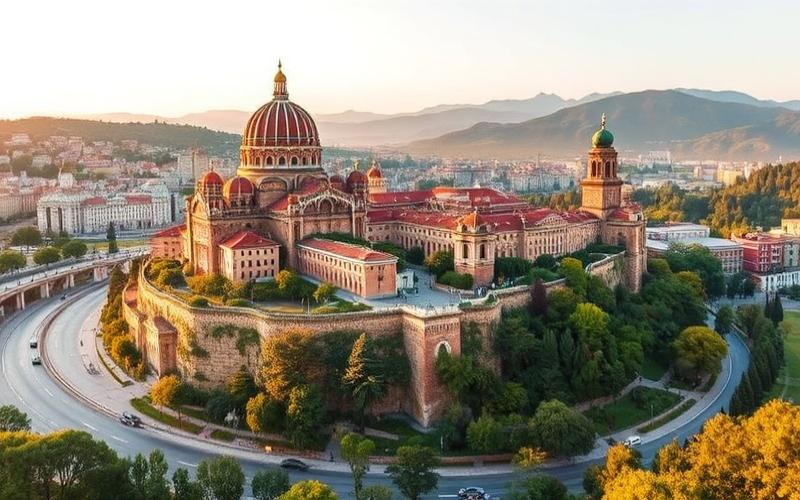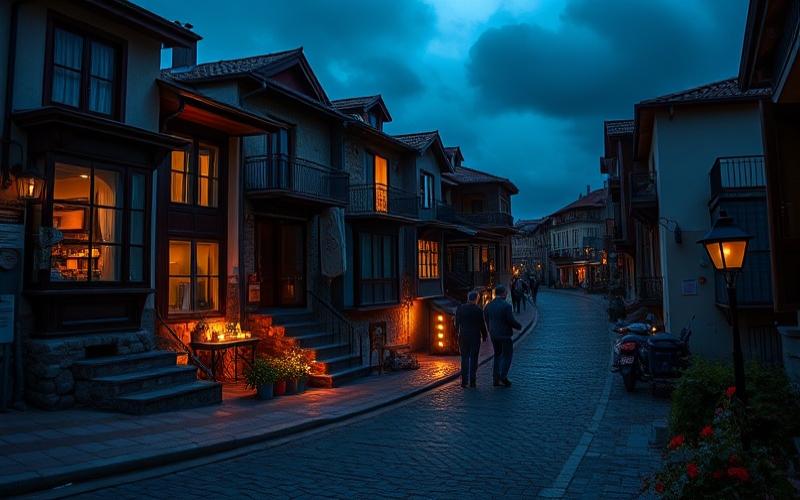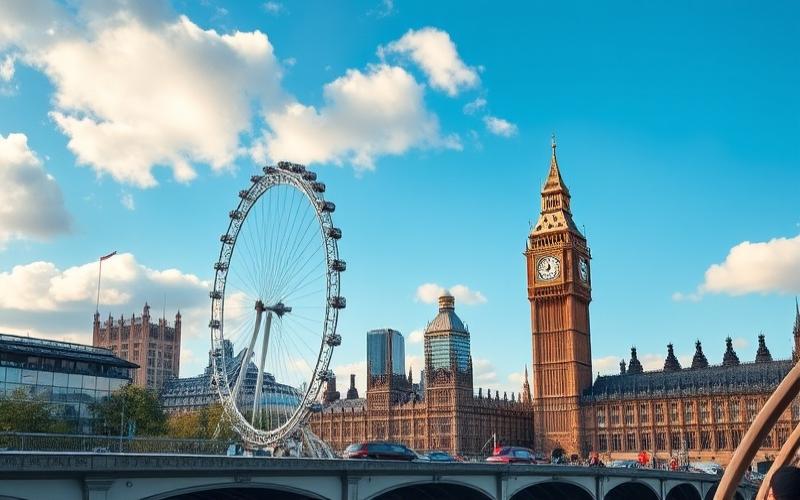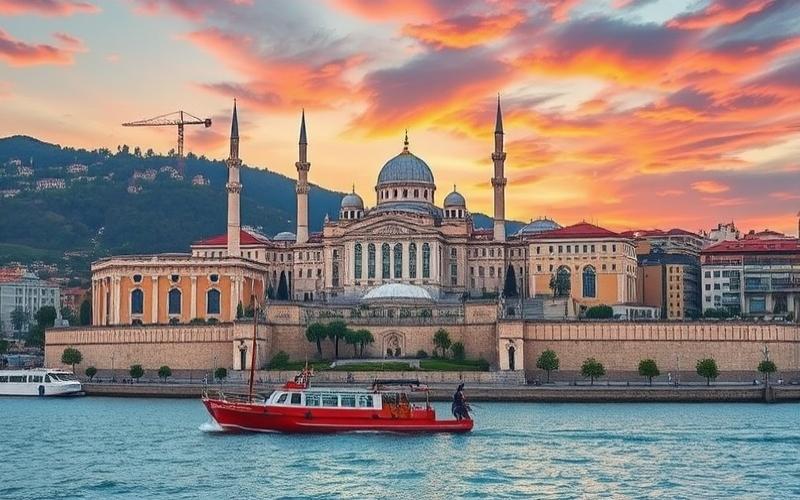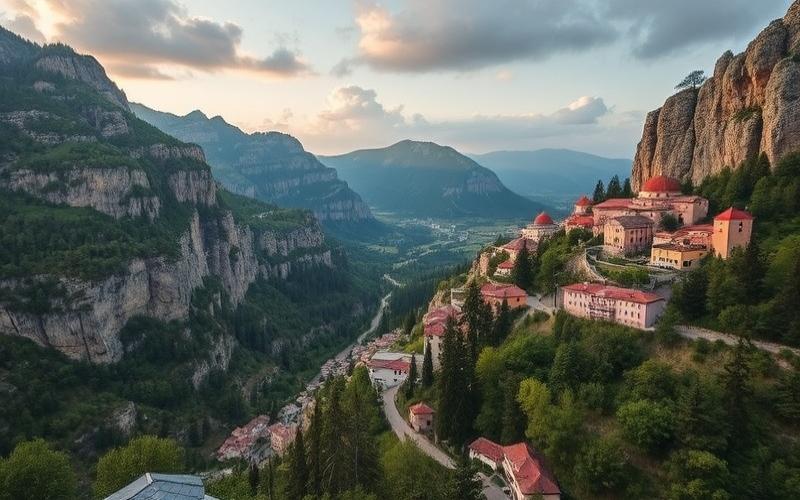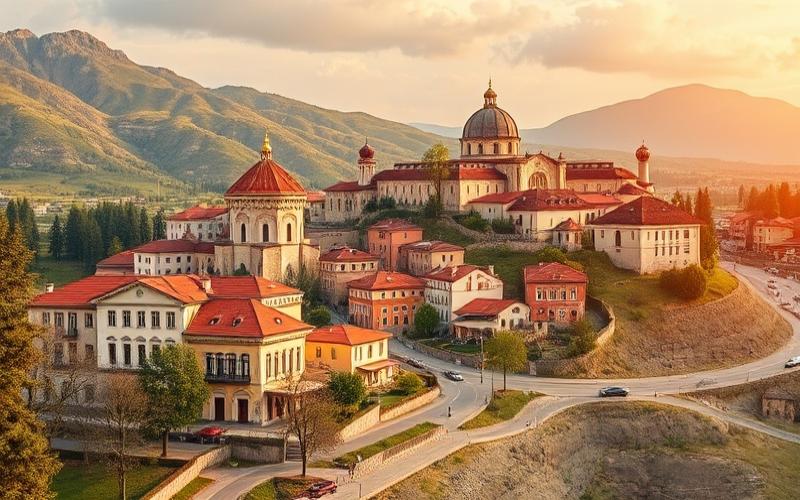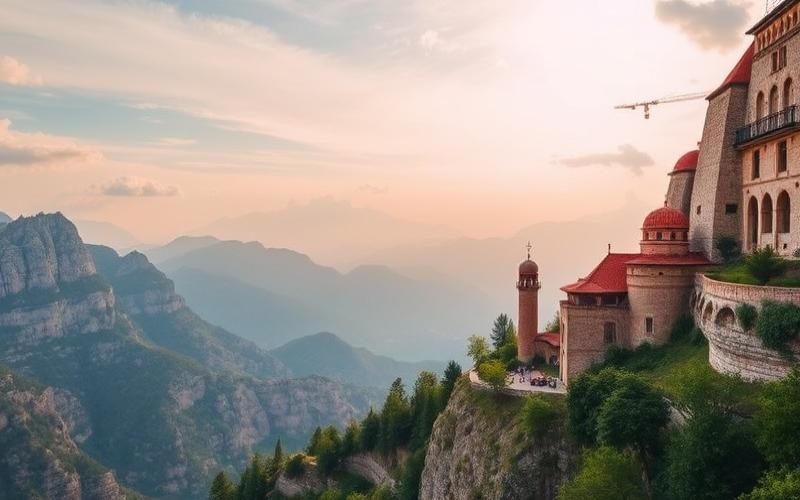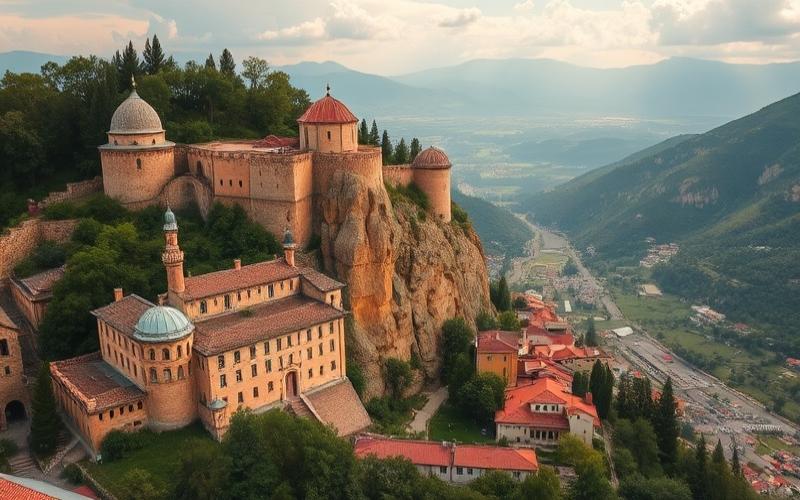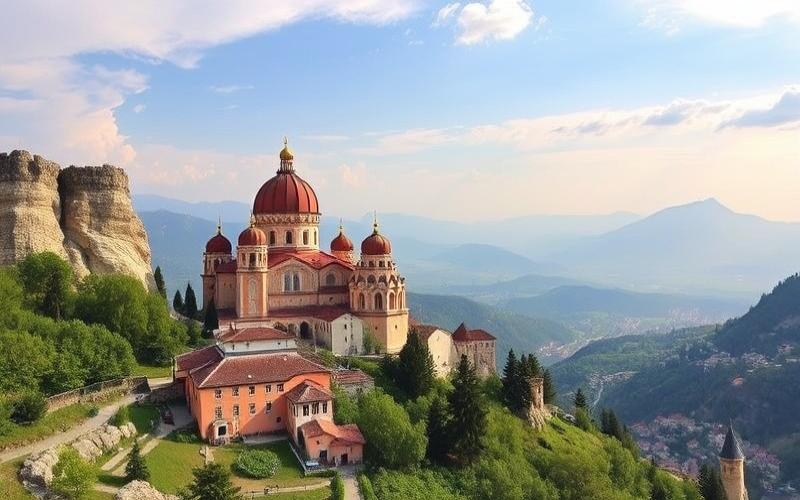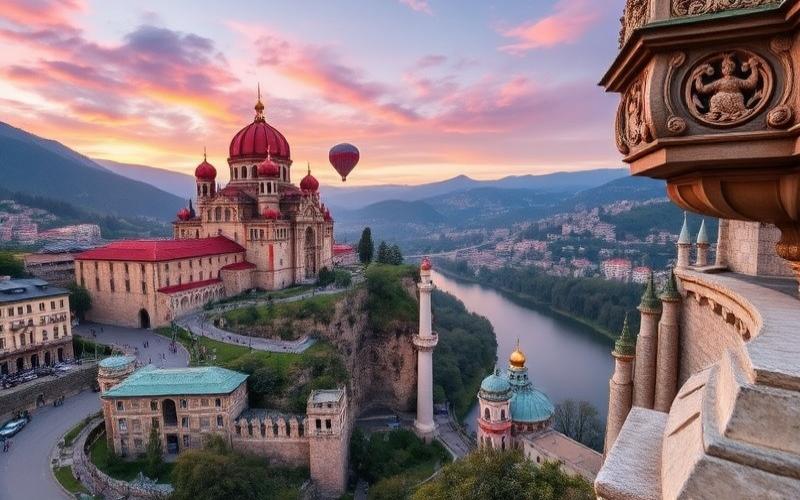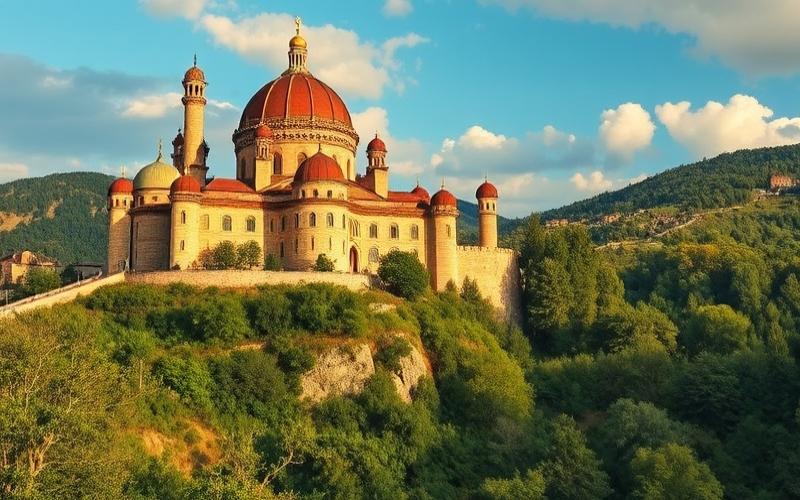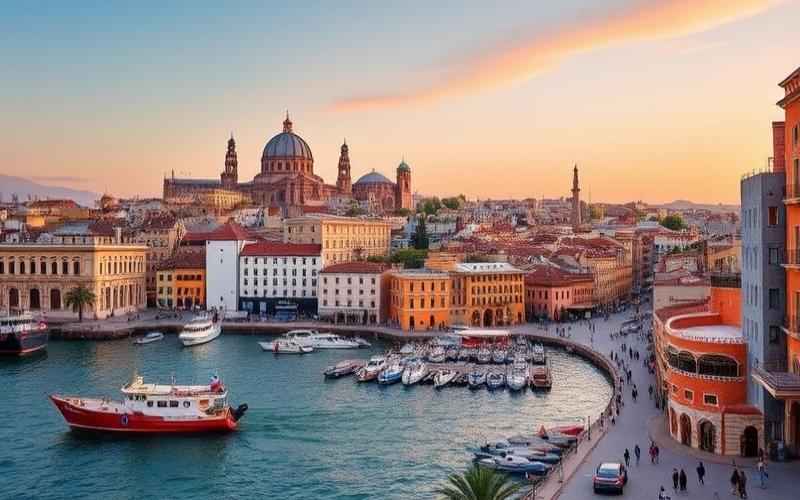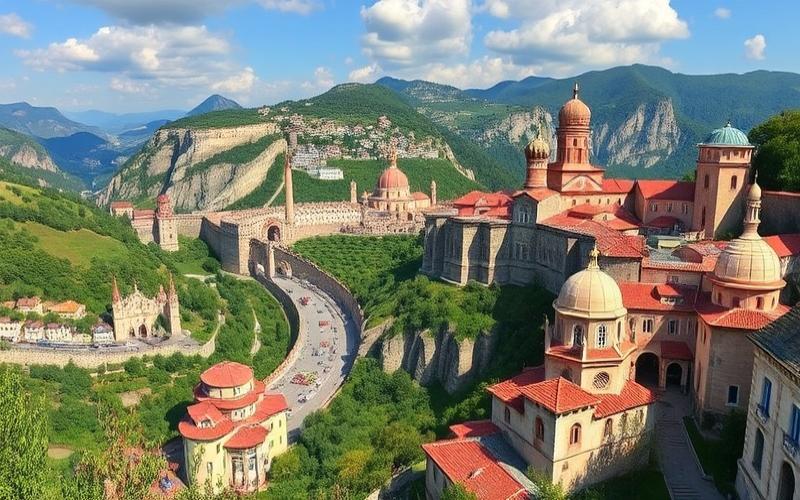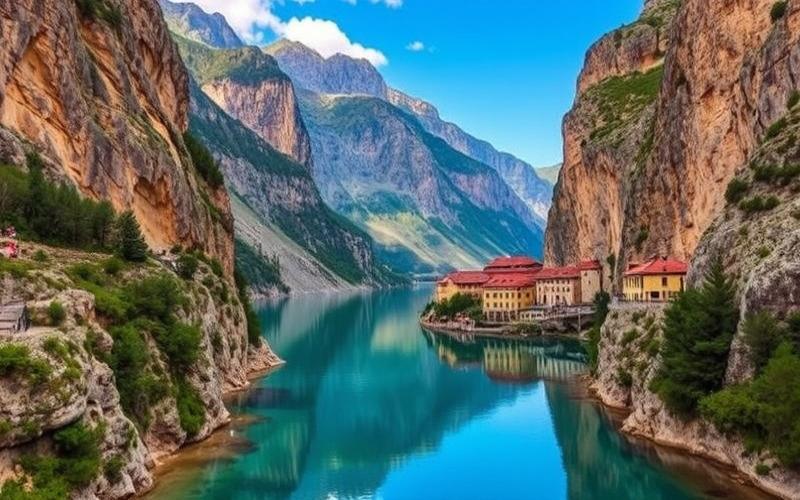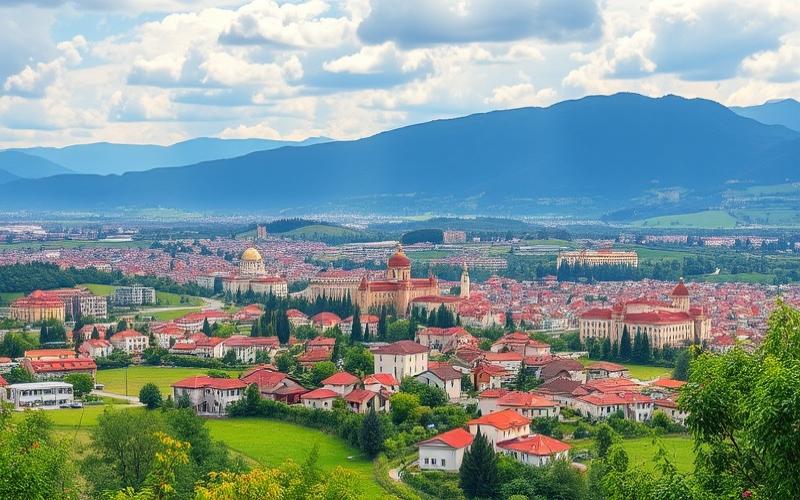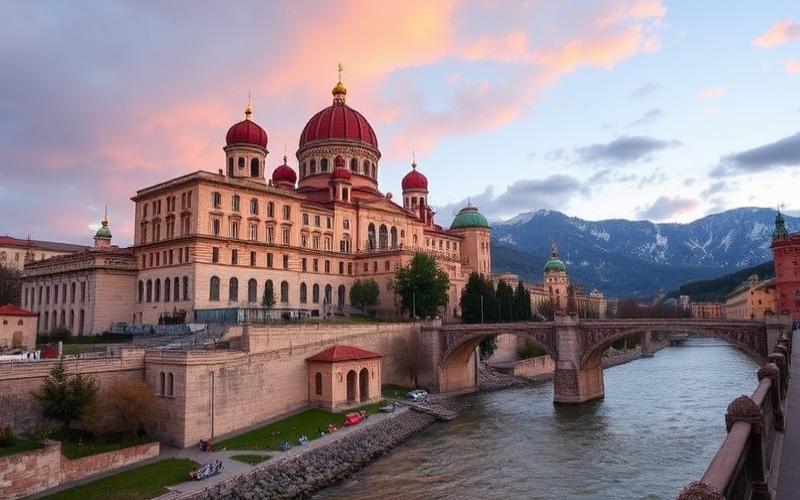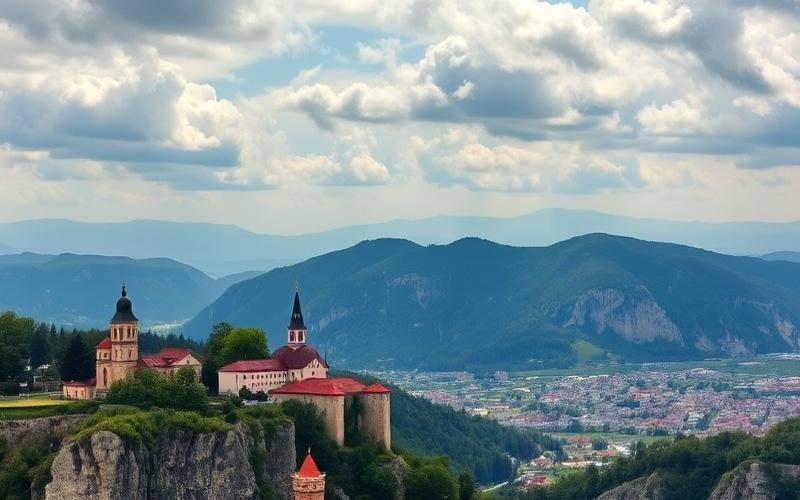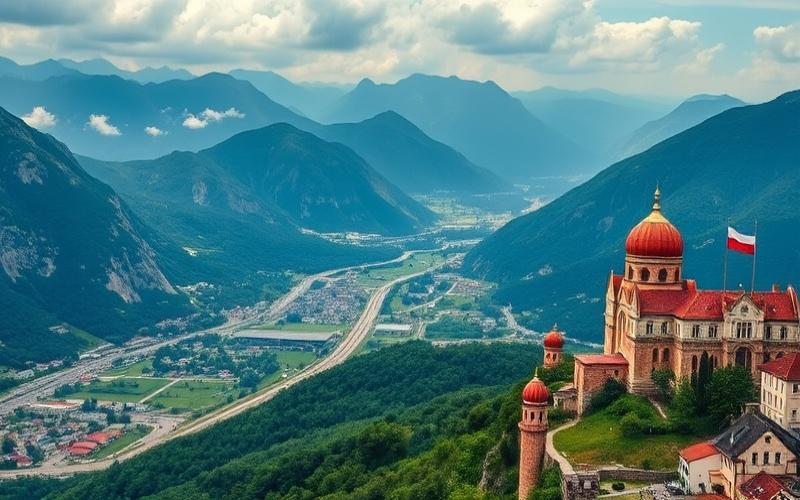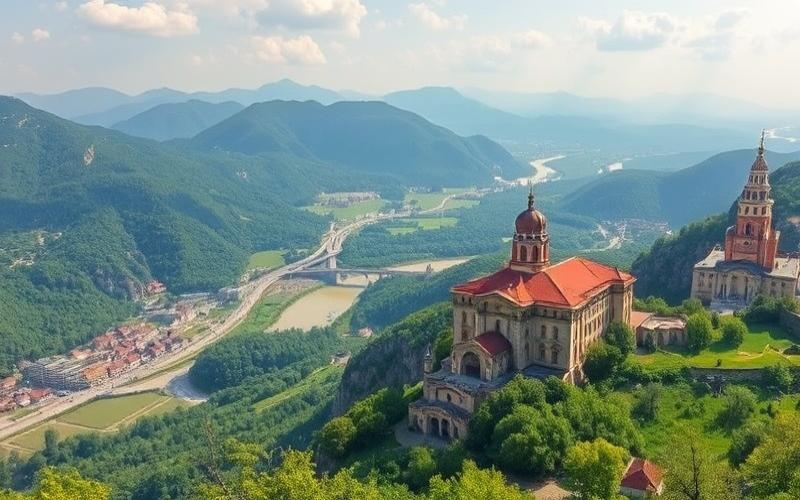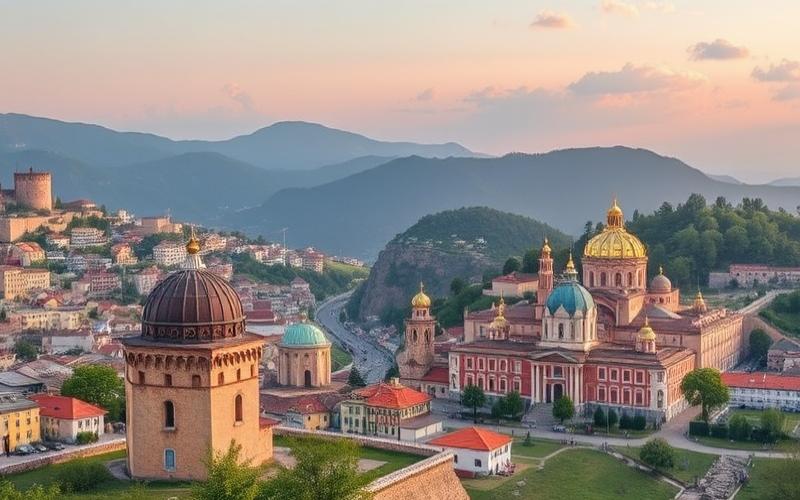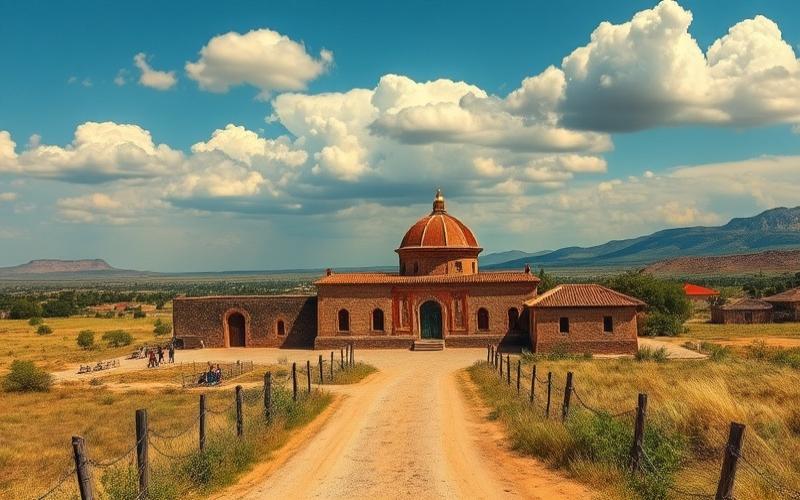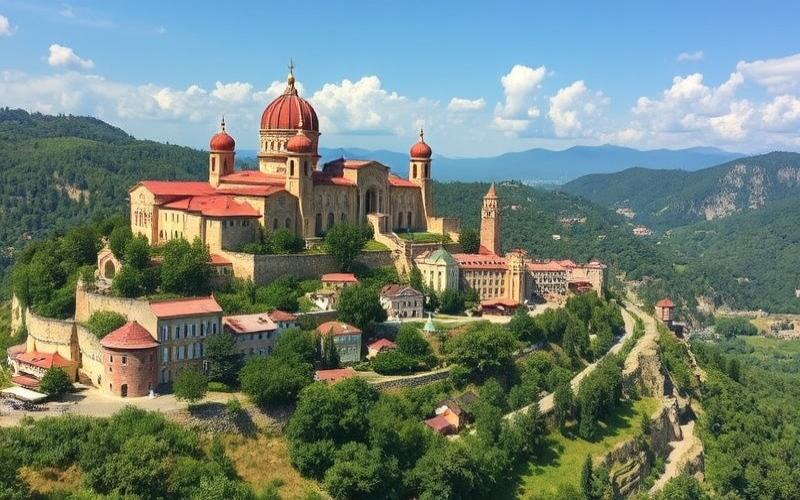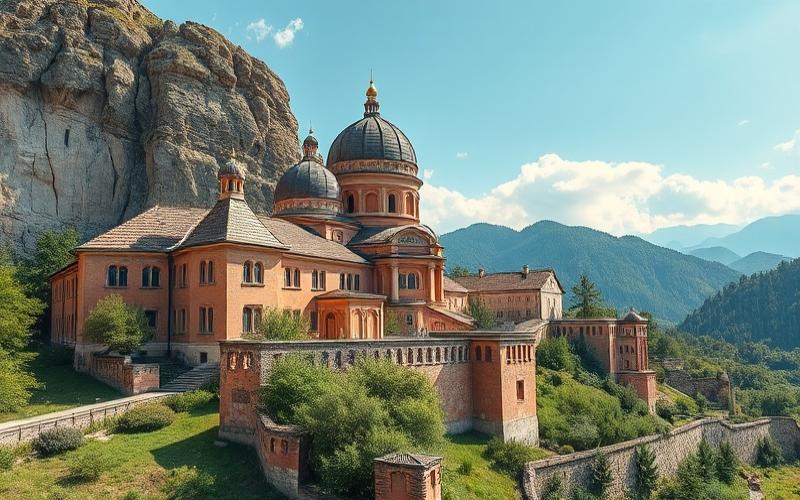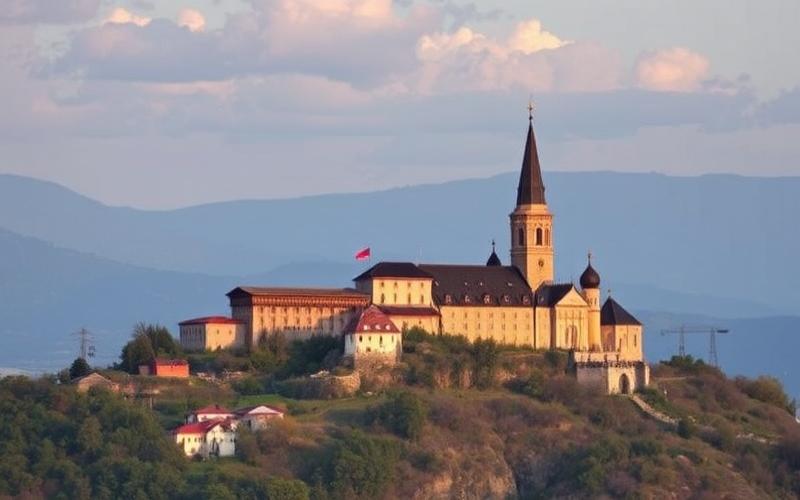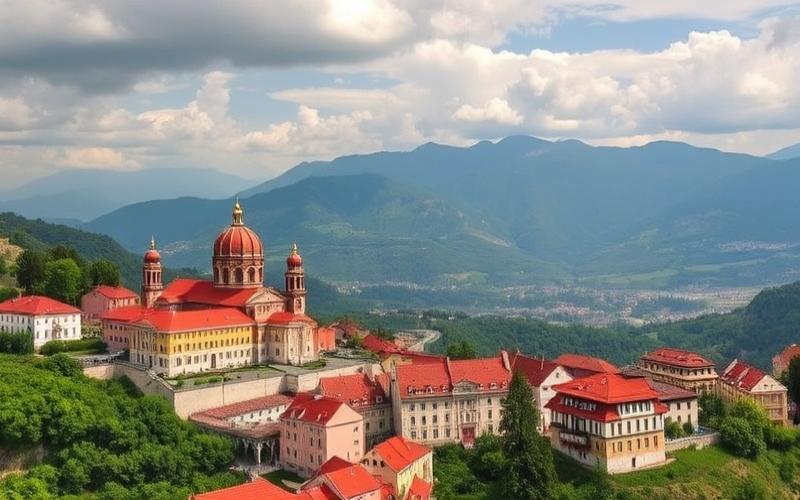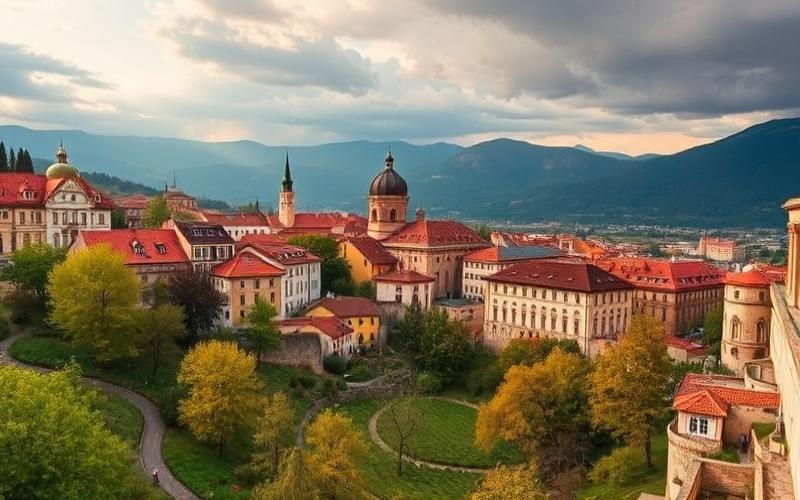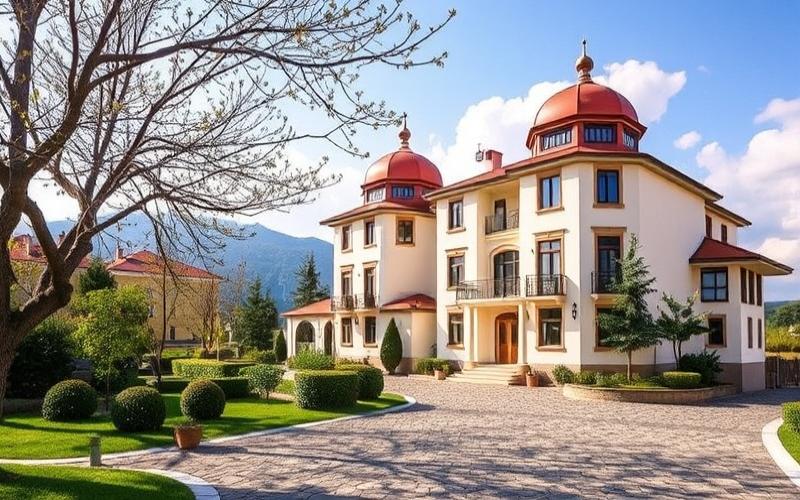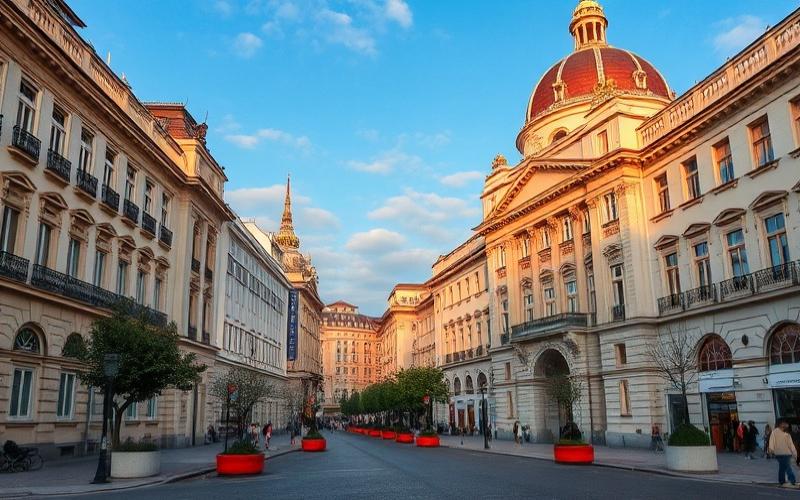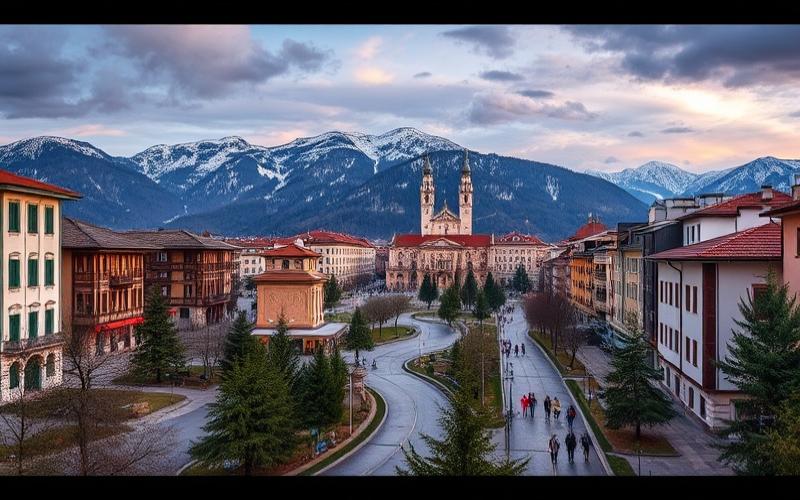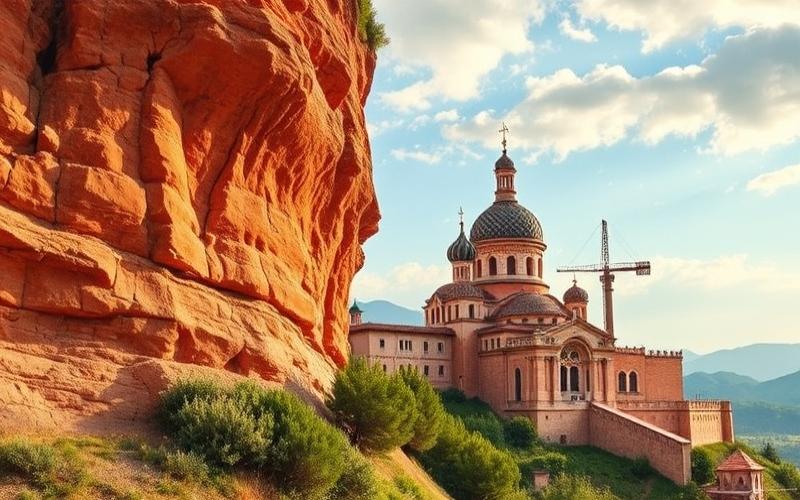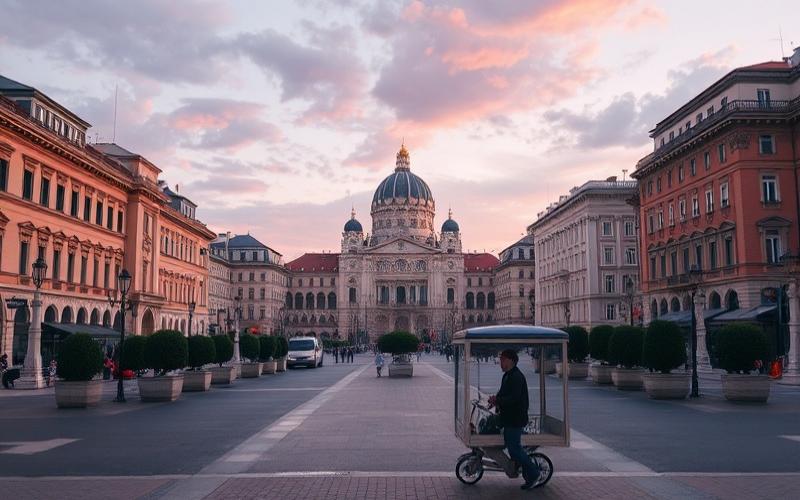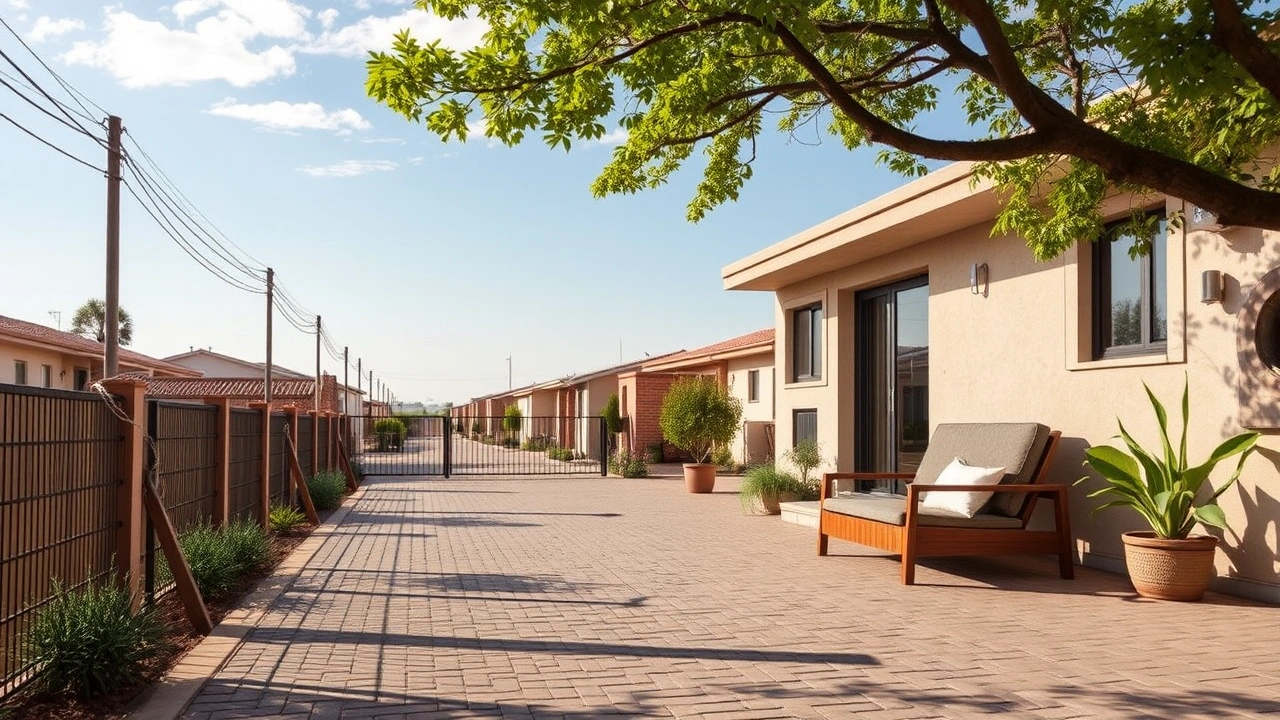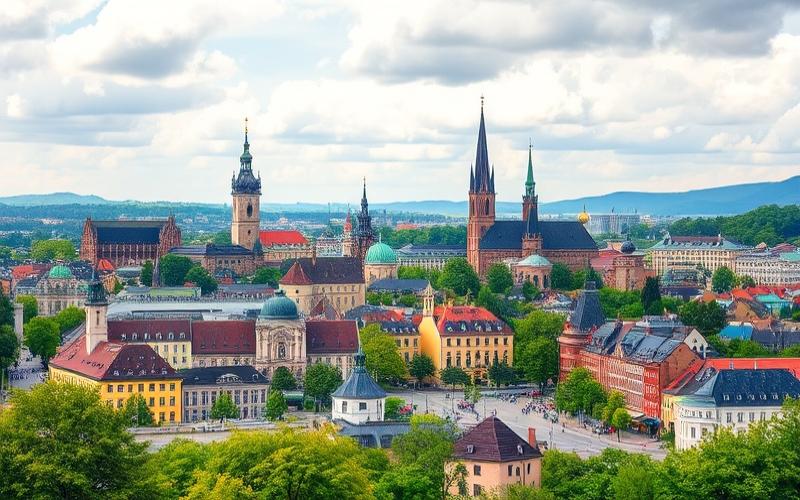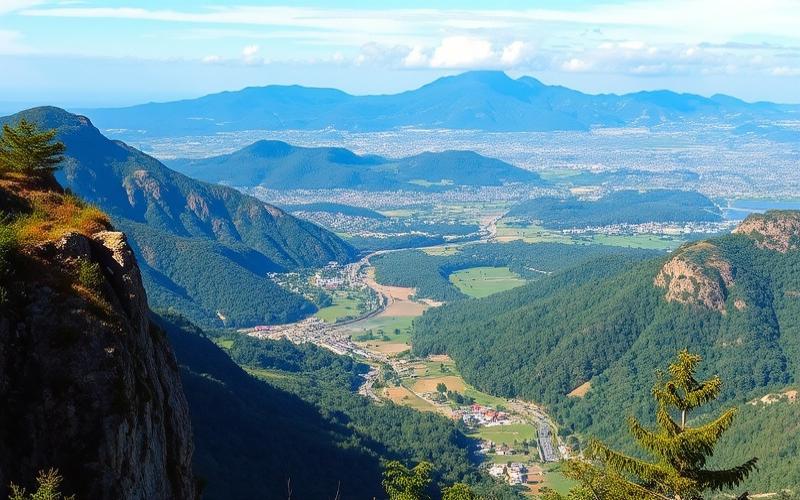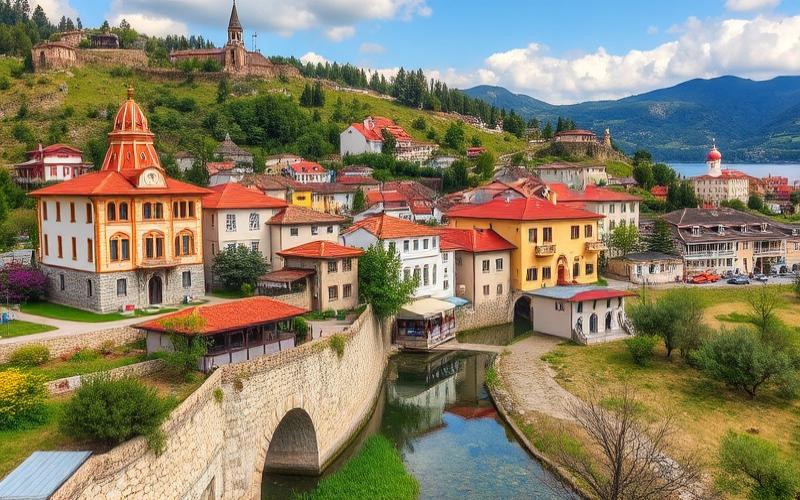
 Published on and written by Cyril Jarnias
Published on and written by Cyril Jarnias
Real estate investment in Bulgaria is attracting more and more foreigners drawn by attractive prices and the potential of this rapidly expanding market. However, buying property in this Eastern European country carries certain risks for uninformed investors. Here’s an overview of the most common mistakes to avoid for a successful property acquisition in Bulgaria.
Failing to thoroughly verify property titles
One of the most serious mistakes when buying property in Bulgaria is neglecting thorough verification of property titles. The Bulgarian land registration system has undergone many changes since the fall of communism, which can lead to complex situations.
It’s crucial to ensure that the seller is indeed the legitimate owner of the property and has the right to sell it. In some cases, particularly for rural properties or agricultural land, there may be ownership claims from former owners expropriated during the communist era.
To avoid this pitfall, it’s highly recommended to hire a lawyer specialized in Bulgarian real estate law. They can conduct thorough research on the property’s history, verify the absence of ongoing disputes, and ensure all documents are in order.
Good to know:
In Bulgaria, the land registry is public and accessible online. However, its interpretation can be complex for non-experts, hence the importance of working with competent professionals.
Underestimating the importance of location
As everywhere in the world, location is a key factor in real estate investment in Bulgaria. Yet, many foreign buyers are drawn by attractive prices without sufficiently considering the property’s location.
In Bulgaria, disparities between regions are significant. Some areas, like the capital Sofia or Black Sea resorts, are experiencing rapid development and offer good appreciation potential. Other regions, however, suffer from demographic and economic decline that can affect the long-term value of your investment.
It’s essential to thoroughly research the region where you plan to buy. Study local development projects, demographic and economic trends. If you plan to rent out your property, ensure there’s sufficient demand in the area.
Don’t hesitate to visit the location during different times of the year to get an accurate picture of the environment. This is particularly important if you’re considering buying in a beach or ski resort, where the atmosphere can change dramatically between high and low season.
Good to know:
Property prices in Bulgaria vary significantly by region. In 2024, the average price per square meter in Sofia was about 1,200 euros, compared to 400 to 600 euros in secondary cities like Plovdiv or Varna.
Overlooking additional fees and taxes
A common mistake among foreign investors is not accounting for all costs associated with buying real estate in Bulgaria. Beyond the purchase price, several additional costs must be budgeted:
- Notary fees (approximately 0.1 to 1% of purchase price)
- Cadastral registration fees (0.1% of property value)
- Property transfer tax (up to 3% depending on municipality)
- Legal fees (variable, but count on about 1% of purchase price)
- Document translation fees if necessary
It’s also important to understand the Bulgarian tax system well. Although tax rates are generally lower than in Western Europe, some investors are surprised by the annual property tax, which can vary significantly between municipalities.
Additionally, if you plan to rent out your property, remember that rental income is subject to tax in Bulgaria, with a flat rate of 10% for individuals. Double taxation agreements exist with many countries, but it’s advisable to consult a tax expert to optimize your situation.
Good to know:
On average, additional costs associated with buying real estate in Bulgaria represent between 5 and 7% of the purchase price. It’s crucial to include these costs in your initial budget.
Skipping professional property inspection
The excitement of finding the perfect property can sometimes lead buyers to neglect a crucial step: professional property inspection. This mistake can prove costly, especially in a country where construction standards have evolved significantly in recent decades.
In Bulgaria, many properties, particularly in older beach or ski resorts, were built quickly during the 2000s real estate boom. Some may have structural defects or moisture problems that aren’t immediately visible.
It’s highly recommended to hire an independent expert to inspect the property before purchase. This expert can assess:
- Construction quality
- Condition of electrical and plumbing installations
- Potential presence of mold or moisture
- Compliance with safety and thermal insulation standards
This inspection can help you avoid unpleasant surprises after purchase and give you leverage to negotiate the price if repairs are needed.
For new or under-construction properties, ensure the developer complies with all current regulations. Specifically verify that they have all necessary permits and that the property will be delivered with a certificate of completion (Act 16 in Bulgaria).
Good to know:
The cost of professional inspection in Bulgaria typically ranges between 200 and 500 euros depending on the size and complexity of the property. This is a minimal investment compared to potential savings on unforeseen repairs.
Underestimating cultural and language differences
Buying property in a foreign country involves navigating a different cultural and linguistic environment. In Bulgaria, this reality is particularly significant and can lead to costly misunderstandings if neglected.
The language barrier is a major challenge for many foreign investors. Bulgarian, with its Cyrillic alphabet, can seem impenetrable to non-initiates. Although English is increasingly widespread, especially in large cities and tourist areas, many official documents and contracts are only available in Bulgarian.
It’s crucial to surround yourself with trusted bilingual professionals:
- A lawyer specialized in real estate law
- A real estate agent experienced in international transactions
- A certified translator for official documents
Beyond language, cultural differences in business conduct can also be a source of confusion. Bulgarians tend to be more direct in their communications than Westerners, which can sometimes be misinterpreted as rudeness.
Additionally, the pace of transactions may differ from what you’re used to. Administrative processes can sometimes seem slow or bureaucratic to foreigners. Patience and flexibility are essential qualities for successfully completing your real estate project in Bulgaria.
Good to know:
According to a recent study, about 25% of Bulgarians speak English at a conversational level. This figure rises to 50% among young people aged 18-35 in large cities. However, for real estate transactions, it’s always better to rely on bilingual professionals.
Ignoring specifics of the Bulgarian rental market
For those considering buying property in Bulgaria with the intention of renting it out, it’s crucial to understand the particularities of the local rental market. Ignoring these specifics can lead to disappointments in terms of profitability.
The Bulgarian rental market is characterized by strong seasonality, particularly in tourist areas. In Black Sea resorts like Sunny Beach or Golden Sands, the high season lasts only a few months, from June to September. Similarly, in ski resorts like Bansko or Borovets, the season generally extends from December to March.
This seasonality has several implications:
- Rental income can be very concentrated in a few months of the year
- Rental management requires rigorous organization to maximize occupancy during peak demand periods
- Property maintenance must be scheduled outside rental periods
In large cities like Sofia or Plovdiv, the rental market is more stable throughout the year, but competition is also stronger. It’s important to thoroughly study local demand and target the right type of tenants (students, expatriates, local families) based on the location and characteristics of your property.
Remember that Bulgarian rental legislation may differ from that of your home country. For example, leases are typically short-term (often one year renewable) and tenants have relatively limited rights compared to some Western European countries.
Finally, be realistic in your rental yield expectations. Although purchase prices are attractive, rents in Bulgaria remain moderate compared to Western standards. In 2024, the average gross rental yield in Sofia was about 5 to 6% per year.
Good to know:
In Bulgarian beach resorts, up to 70% of annual rental income can be generated during the three summer months. Effective management of seasonal rentals is therefore crucial to maximize your investment’s profitability.
Neglecting the importance of homeowners associations and fees
An aspect often underestimated by foreign investors in Bulgaria concerns the management of homeowners associations and associated fees. This neglect can have significant consequences on the value and profitability of your property in the long term.
In Bulgaria, many buildings, particularly in tourist complexes, are managed by homeowners association management companies. These companies are responsible for maintaining common areas, security, and sometimes even renting apartments in owners’ absence.
It’s crucial to understand well:
- How the homeowners association operates
- The amount and frequency of fees
- Services included in these fees
- The quality of building management
In some complexes, particularly in beach or ski resorts, fees can be high, especially if the building has amenities like a pool, spa, or 24/7 security service. These fees can significantly impact your investment’s profitability.
Additionally, the quality of homeowners association management can directly impact your property’s value. A poorly maintained building will depreciate faster and be less attractive to potential tenants.
Before buying, inquire with other owners about their satisfaction with building management. Also check the homeowners association’s financial status: insufficient reserve funds could mean unexpected assessments in the future.
Finally, pay attention to homeowners association rules, particularly regarding rentals. Some complexes impose restrictions on short-term rentals, which could affect your plans if you’re considering seasonal rentals.
Good to know:
In Bulgarian tourist complexes, homeowners association fees can represent up to 15-20% of annual rental income. It’s therefore essential to include these costs in your profitability calculation before investing.
Rushing into an offer without comparing
The excitement of finding a property at an attractive price can sometimes lead investors to rush without taking time to properly compare offers on the Bulgarian market. This haste can cause you to miss better opportunities or lead you to overpay for your property.
The Bulgarian real estate market is dynamic and offers a wide variety of properties. Prices can vary considerably, even within the same city or neighborhood, depending on factors such as property condition, floor, orientation, or building amenities.
Before committing, take time to:
- Visit several similar properties in the same area
- Compare prices per square meter
- Evaluate each property’s appreciation potential
- Analyze local market trends
Don’t hesitate to negotiate the price, especially if you’ve identified defects or if the property has been on the market for a long time. Bulgarian sellers often expect negotiation, and you might get a significant reduction from the listed price.
Also be wary of offers that seem too good to be true. If a property is offered at a price significantly below market value, there’s probably a reason. This could be related to legal issues, hidden defects, or poor location.
Finally, keep in mind that the Bulgarian real estate market, although growing, can experience fluctuations. Don’t be pressured by arguments like “this is the last available apartment” or “prices will increase quickly.” Take time for reflection and comparison to make an informed choice.
Good to know:
According to data from the Bulgarian National Revenue Agency, property prices in the country’s major cities increased by an average of 8% per year between 2020 and 2024. However, this growth isn’t uniform, and some areas are experiencing stagnation or even price declines.
Ignoring specific regulations for foreign buyers
Although Bulgaria has been an EU member since 2007, some specific regulations still apply to foreign buyers. Ignoring these rules can lead to significant legal and administrative complications.
The main restriction concerns land purchases. Non-Bulgarian citizens and non-EU nationals cannot directly purchase land in Bulgaria. This restriction applies to agricultural land, forest land, and undeveloped land in urban areas.
To circumvent this limitation, many foreign investors choose to establish a Bulgarian company that can then acquire the land. This solution is legal but involves additional administrative procedures and management costs to consider.
Other points to consider include:
- The obligation to obtain a Bulgarian tax identification number (equivalent to social security number) for any real estate transaction
- The need to report the purchase to the Bulgarian National Bank if you’re not a tax resident in Bulgaria
- Potential restrictions on purchasing real estate in certain border or strategic areas
It’s also important to note that if you plan to spend more than 183 days per year in Bulgaria, you’ll be considered a tax resident and will need to declare your worldwide income to Bulgarian authorities.
Finally, if you’re considering obtaining a residence permit in Bulgaria through your real estate investment, be aware that rules have been tightened in recent years. Buying real estate no longer automatically guarantees obtaining a residence permit, and additional conditions may apply.
Good to know:
Since 2014, EU citizens can purchase land in Bulgaria without restrictions. However, for non-EU nationals, establishing a Bulgarian company remains the most common solution for acquiring land, with about 70% of land purchases by foreigners made through this method.
In conclusion, investing in Bulgarian real estate can be an interesting opportunity, but it’s crucial to be well-informed and prepared. By avoiding these common mistakes and surrounding yourself with competent professionals, you’ll maximize your chances of making a successful and profitable investment in this promising market.
Disclaimer: The information provided on this website is for informational purposes only and does not constitute financial, legal, or professional advice. We encourage you to consult qualified experts before making any investment, real estate, or expatriation decisions. Although we strive to maintain up-to-date and accurate information, we do not guarantee the completeness, accuracy, or timeliness of the proposed content. As investment and expatriation involve risks, we disclaim any liability for potential losses or damages arising from the use of this site. Your use of this site confirms your acceptance of these terms and your understanding of the associated risks.

